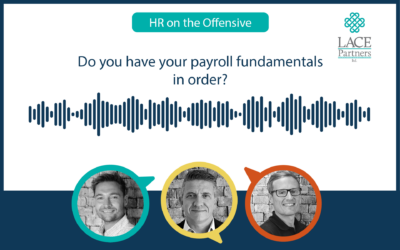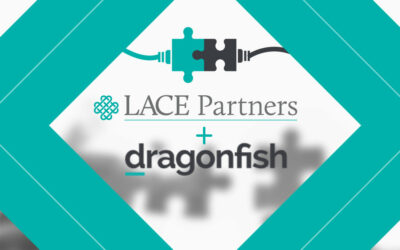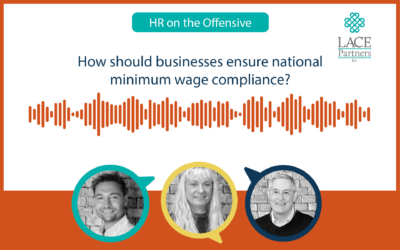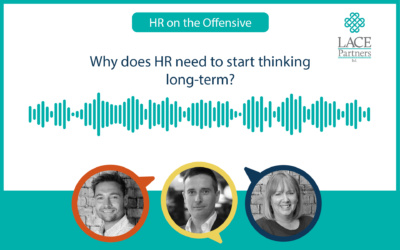As part of our ongoing blog series focusing on some of the key findings from the HR on the Offensive whitepaper released in June 2019, Emma Leonis looks at one of the key elements of the report – building HR’s capability.
One of the most frequent challenges HR Directors mention when talking about their teams’ ability to deliver bottom line value is HR capability: ‘we’re distinctly average’. But why is this and what do we need to do to make a difference?
We lack the right learning interventions
We asked attendees at our 2019 people_tech conference whether their organisations had an HR capability framework and also if they had a learning curriculum specific to HR. The response was a resounding ‘no’ on both counts: 66% and 69%. This mirrors findings from our ‘HR on the Offensive’ research, where only 32% of respondents had a strategic learning intervention in place for building HR capability.
We need to focus on the skills which drive competitive advantage
The organisations that do have HR capability programmes have, in the past, tended to focus on a part of the function (such as HR Business Partners). We need to take a more holistic approach to HR development. If we are clear on the strategic outcomes we’re seeking to achieve and we know how to deliver them, we are in a strong position to determine the critical skills that will define our competitive advantage. It’s these critical skills that we should prioritise investing in across our people consultants and operational specialists. We then have the decision of whether we ‘build or buy’. Given the finite external talent pool for some skills, such as data scientists, we have to consider how we build skills for longer term success. Off the shelf solutions are unlikely to have the desired impact – we need to invest in tailored programmes at the role and individual level and we need to supplement internal support with external advice (e.g. peer organisations / experts).
We need to make some tough decisions
As HR leaders, we want to do our best to support our customers. This means we often say ‘yes’ to additional activities which were not originally in our people plan and therefore we risk spreading the talent we have too thinly. We need to focus this talent on the right priorities – which means we need to say ‘no’ more. In addition, if we are clear on the capabilities required and we’ve tried to develop individuals but they’re not stepping up, HR leaders must take the bold step of moving people out of their teams. We cannot compromise on capability if we are going to deliver the impact we aim to achieve. Neither of these will be easy calls to make, but they are fundamental.
We need to start seeing ourselves as a priority
I find it ironic that we do not place the right focus on our functional capability, given that a key part of HR’s role to develop talent. But perhaps this is precisely the problem. We (HR) see our priority focus is to make sure every other part of the business has the capabilities it needs to be successful and deliver business value; we put everyone else first. How can we be expected to support the business effectively if we can’t address our own capability challenges?
We need to market ourselves and fight for the investment
However, even if we did become more ‘selfish’, I still don’t think we’d completely solve the problem. I’ve spoken to many HR Directors over the past 12 months as part of client work, research and at events. From these conversations, it feels like we have an inferiority complex. Firstly, would any other function be as critical of itself, such as Finance or IT? And secondly, when it comes to marketing ourselves and competing for the best and brightest, how do we perform? I think it’s shocking that the function which is at the centre of supporting employees is often one of the most underinvested. We need to shift the perception of HR both internally and externally – HR can be a cool, transformational place to work! – and we need to fight for the budget we need, and deserve, to invest in our own talent development. To do this, we need to be bolder, embrace the data we have available to build our case for change and ‘go on the offensive’. Ultimately, if we don’t do this, who else will?
If you’d like to reach out to Emma to discuss any of the core themes from the HR on the Offensive whitepaper then please feel free to get in touch on +44 (0) 20 8065 0310 or email emma@lacepartners.co.uk.






